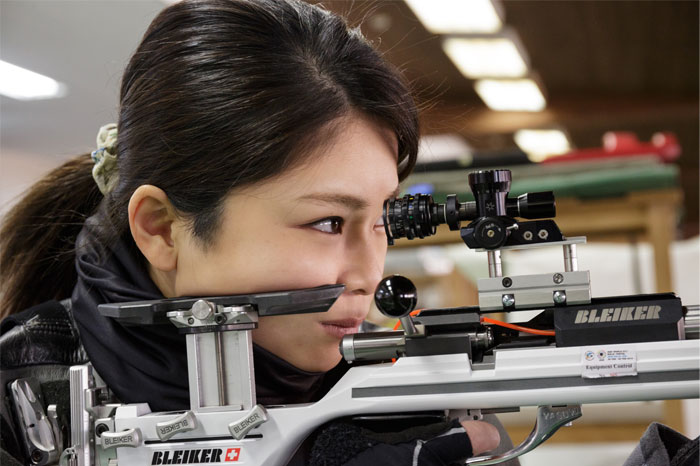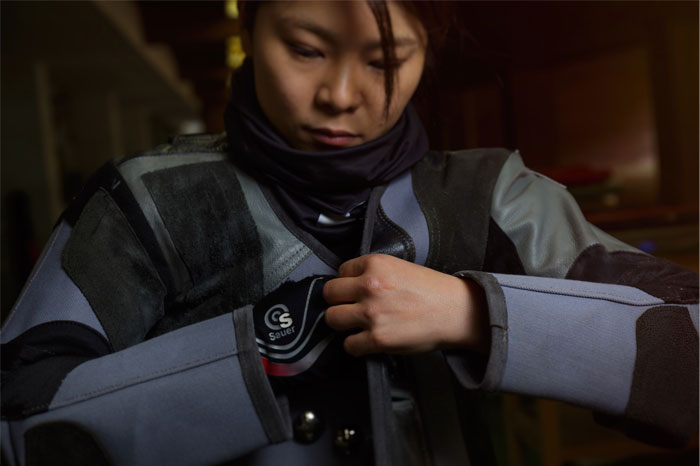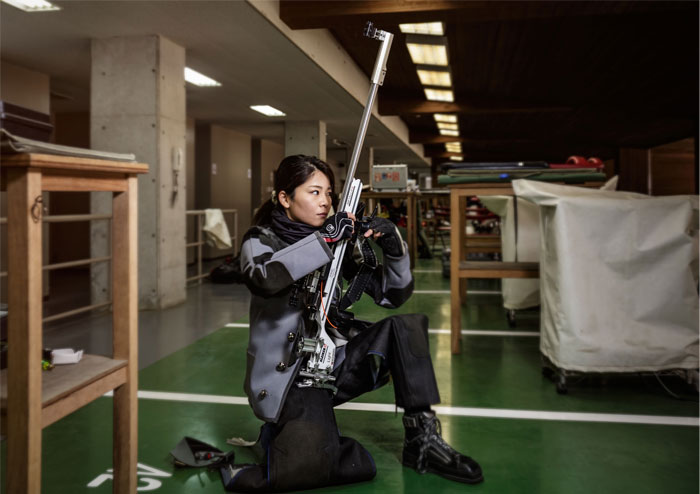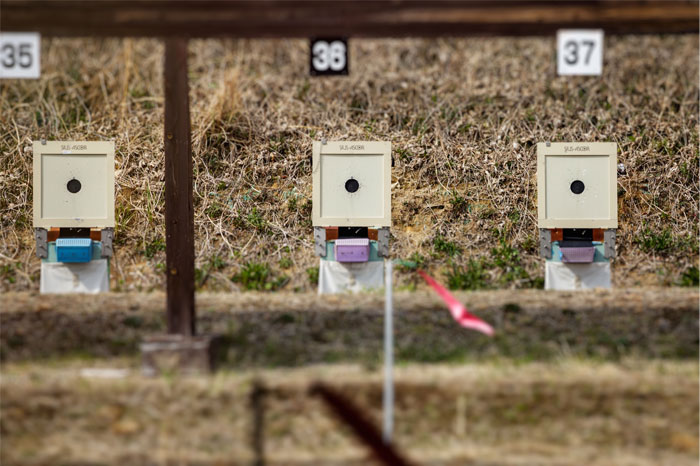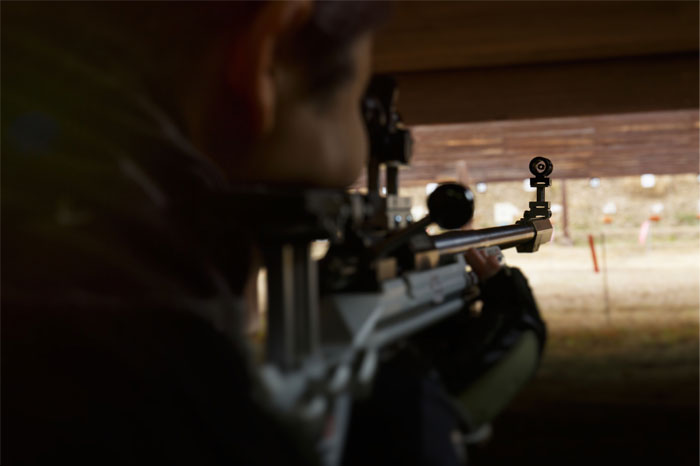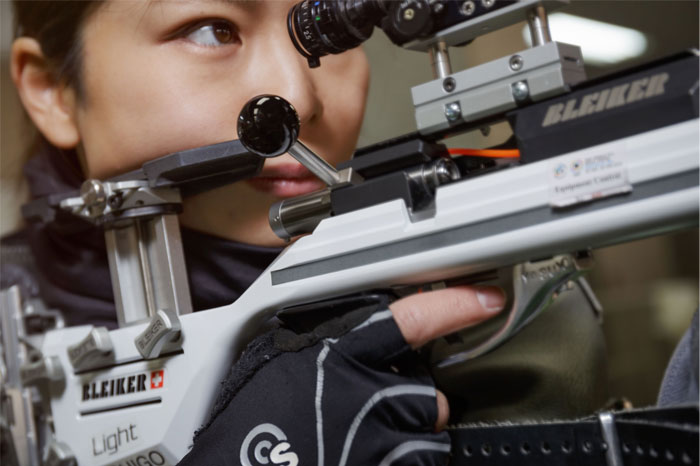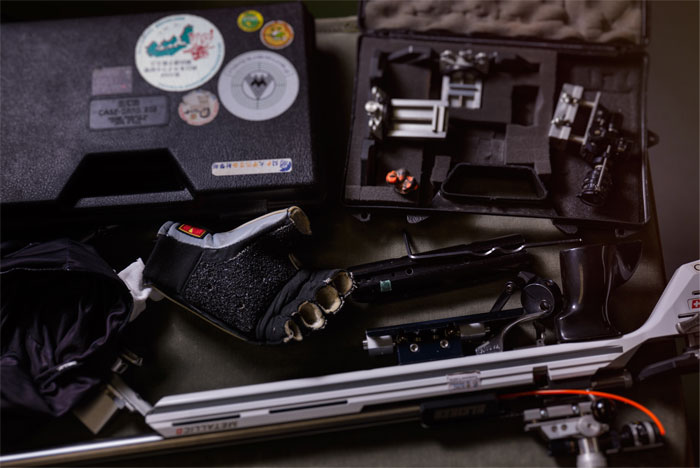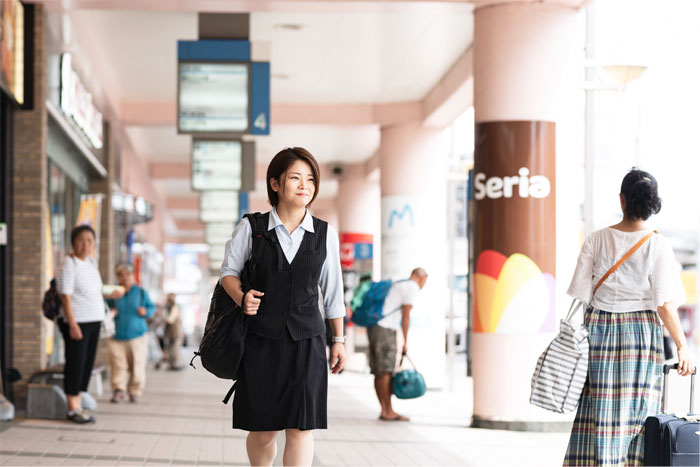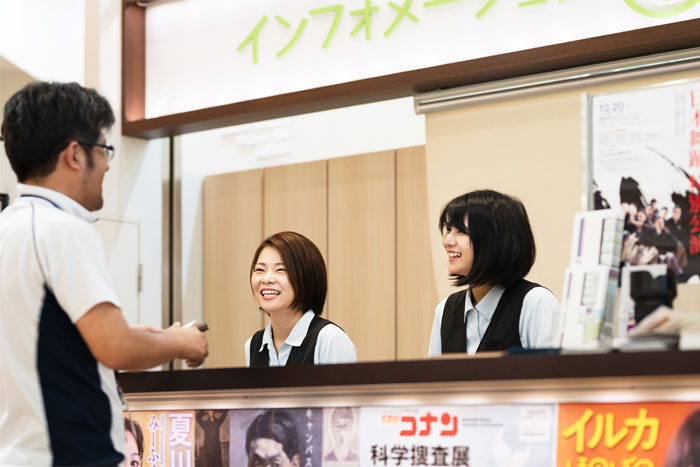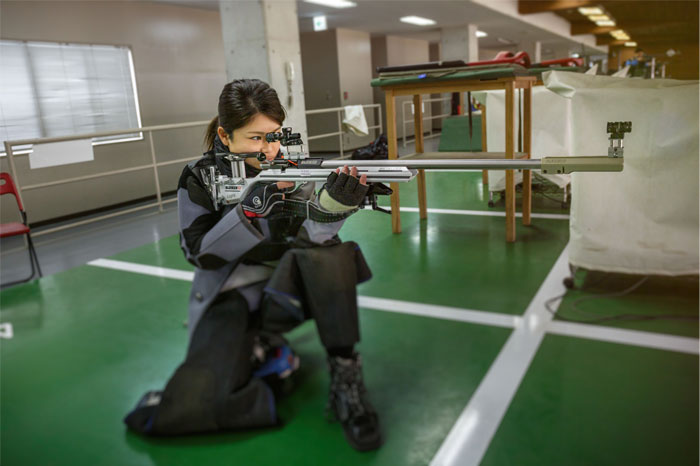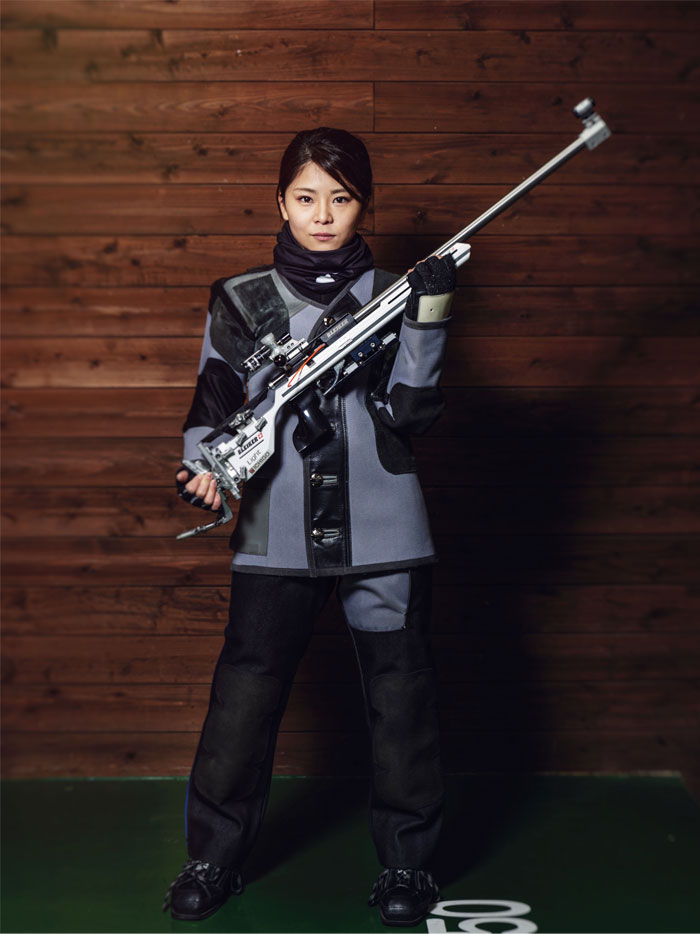
 Story
Story
Setting Her Sights on Tokyo 2020
The Olympic Dreams of Sharpshooter Yasuyo Matsumoto
Yasuyo Matsumoto never saw a gun until she was 14.
Matsumoto was a middle school student attending a recruiting event at a nearby high school, which happened to be the only school in her part of southern Japan to have a shooting team. Curious, she went to the schoolʼs shooting range, where team members let her try a few shots with an air gun.
She was hooked immediately.
‟In Japan, you never get to pull a trigger and feel the thrill of hitting a target,” Matsumoto says. ‟I told my mother, ‛This is what I want to do.’”
Fast forward to the present, and Matsumoto, 29, has become one of Japanʼs top markswomen with a .22-caliber rifle, competing in tournaments as far away as Azerbaijan and Qatar. But she has set her sights on hitting a far bigger target, and one closer to home: the 2020 Summer Games in Tokyo.
Her custom-modified, high-precision rifle has an extra-long barrel and sleek silver stock that look straight out of science fiction. However, winning a spot on Japanʼs Olympic shooting team requires more than the right weapon. Matsumoto needs a sharp eye, a steady hand, and a calm mind to consistently hit a bullseye the size of a penny from almost half a football field away.
Competitions can become internal battles that pit shooters against themselves as much as with other opponents. Shooters have two hours and 45 minutes to fire 120 rounds. To make Japanʼs Olympic team, Matsumoto calculates that she needs to score at least 1,170 points out of a perfect 1,200 points.
That means she must hit the bullseye -- for 10 points -- at least 90 out of those 120 times. The other shots can only miss by a few millimeters to remain inside the next circle, which scores nine points. (Targets have concentric rings with the bullseye in the center.)
‟If I hit a nine, self-doubts start to arise,” Matsumoto says. ‟Sometimes, Iʼll step away for ten minutes to regather my thoughts. I remind myself that Iʼm here because I like doing this. Then I can get back in my zone.”
At the Olympic competition distance of 50 meters, the bullseye is barely visible to the naked eye. Matsumoto times her shots to pull the trigger in between heartbeats, which could throw the bullet off by a few precious millimeters. To help steady herself, she wears a special full-body suit made of stiff, thick fabric, and heavy boots.
Matsumoto represents her nation in a sport that few ever get to try in Japan, where guns are tightly controlled. To shoot a rifle, she had to go through a rigorous application process that included written tests and a police background check.
At competitions within Japan, she is often the only shooter who is not a member of a police force or Japanʼs military.
‟I like to watch and learn from the other shooters,” Matsumoto says. ‟I know I can still improve and progress.”
Matsumoto grew up in Kumamoto, a prefecture on Japanʼs southernmost main island of Kyushu. When she was a child, her father, a tractor salesman, took her deep-sea fishing for octopus and snapper, which heʼd cut into the sashimi on the boat deck.
She says she would surprise him with her ability to concentrate so hard on fishing that she never got seasick.
As she grew up, she liked sports but disliked teams, competing in events that she could do alone.
On the high school shooting team, she proved a natural. In her first season, Matsumoto advanced all the way to the national finals -- unheard for a first-year student. She won a scholarship to join the shooting team at Kansai University, where she learned to shoot rifles.
When she graduated, she considered switching to horse riding because there were so few opportunities to become a professional shooter. That is when she found Ichigo, a sustainable infrastructure company that as part of its commitment to helping people excel supports Japanese athletes in lesser-known sports who find it difficult to find sponsors.
Ichigo created a company shooting team just for her, adding other members later. She now spends six to seven hours a day practicing at a shooting range and working out at a gym to build strength and endurance.
Three days a week, she works at Miyako City, a shopping mall owned by Ichigo in Miyazaki, not far from Kumamoto.
‟Shooting is not a common sport in Japan,” she says. ‟But Ichigo is willing to try new things and support new challenges.”
For now, her goal is making the Olympic team, which will be selected in March.
After the Olympics, she has another big goal of raising awareness of and support for her sport: ‟I want to make the sport of shooting better known and more popular in Japan.”

